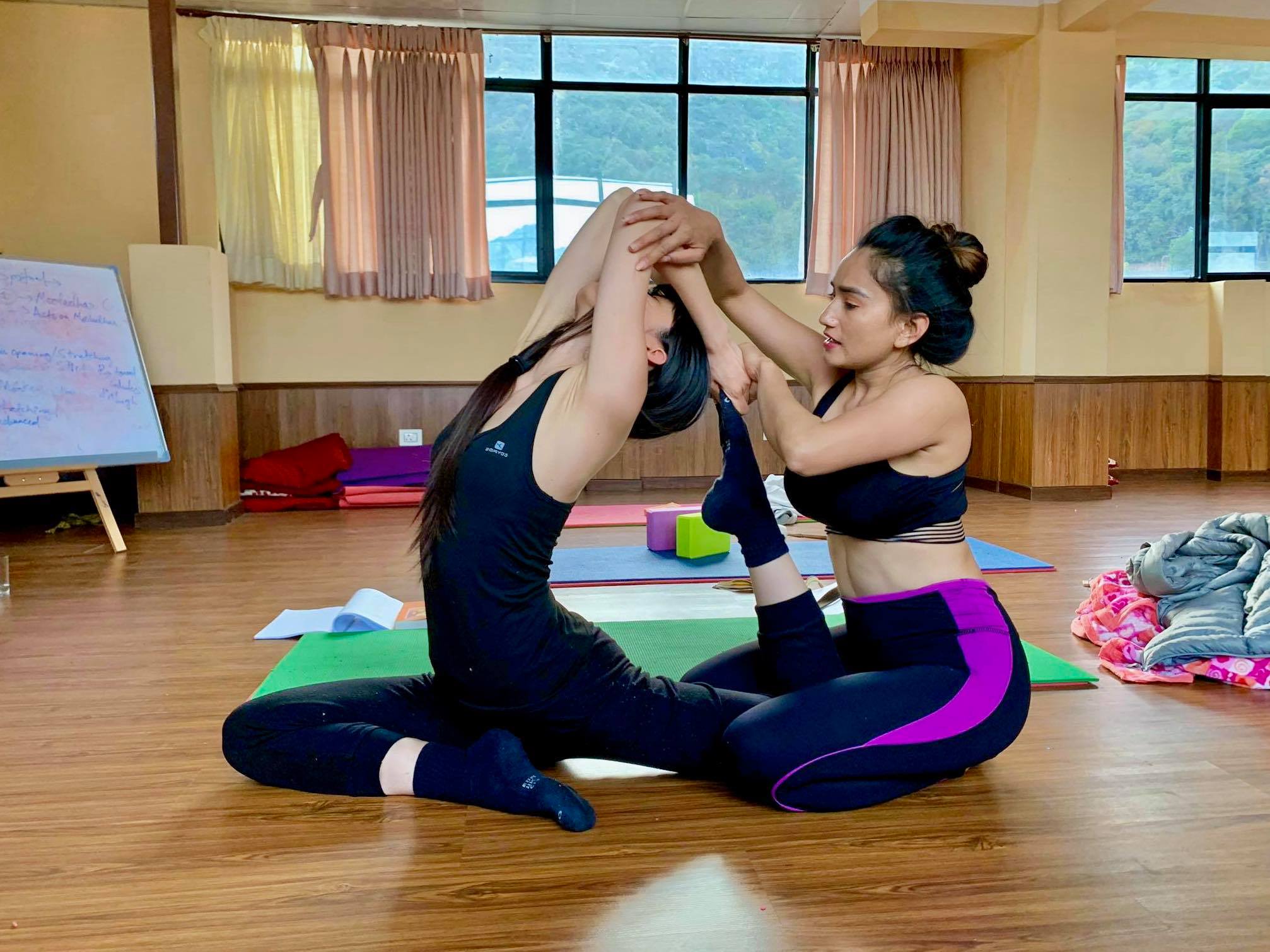
26 Apr 2020 HYN Himalayan Yoga Academy
We present an insightful article on Psychological Stress During COVID-19 Quarantine and Yoga Benefits. Psychology defines stress as a feeling of strain and pressure. Stress is a type of psychological pain however small amounts of stress may be accepted as normal and even healthy. Positive stress helps improve physical performance and mental analysis as it creates the ability to motivate and adapt with the environment especially during crisis but excessive amounts of stress affect our physical, physiological and mental diseases.
In January 2020, the World Health Organization (WHO) declared the outbreak of a new corona virus disease, COVID-19, to be a Public Health Emergency of International Concern. COVID-19 also CORONA Virus is caused by SARS-CoV-2 (Severe Acute Respiratory Syndrome Corona Virus 2) which affects mammals and birds.
“The disease was first identified on 31st December, 2019, in Wuhan, the capital of China’s Hubei province, and has since spread globally, resulting in the ongoing 2019-20 coronavirus pandemic.”
Most people infected with the COVID-19 virus will experience mild to moderate respiratory illness. Old age, and those with underlying medical problems like cardiovascular disease, diabetes, chronic
At this time, there are no specific vaccines or treatments for COVID-19. However, there are many ongoing clinical trials evaluating potential treatments. WHO will continue to provide updated information as soon as clinical findings become available and in time we shall understand that the incubation period for vaccines is not less than 18 months.
Countries like the United States, Italy, the United Kingdom, Spain, and Germany are facing huge crises and are frontlines of coronavirus cases and deaths. However, China, which was the first outbreak, seems to manage the death rate.
In the context of Nepal, more than 49+ people have been diagnosed as Covid-19 positive, and 16 have recovered to date.
The only prevention measure to stop the pandemic in all infected countries has been regulated quarantine. The world has suddenly rested. There is a break in the regular schedule of human life and work format. A huge impact on socio-economic life globally has been felt.
Change in pattern of life, the fear of pandemic, inability to apply the preventive measure from onset of viral infection has resulted in stressful outcome in context of economy and human lifestyle.
The stress (economic, psychological), anxiety, and problems (economic, social, global) people are experiencing during quarantine will bring severe negative outcomes. If the international authority (WHO) and national authority are unable to facilitate individual, national as well and global.
QUARANTINE AND YOGA
The word quarantine comes from quarantena, meaning “forty days”, used in the 14th-15th-century Venetian language and designating the period that all ships were required to be isolated before passengers and crew could go ashore during the Black Death plague epidemic.
In recent context, it is wise for us to understand the importance of quarantine until the authentic and considerable medicines and preventive measures get identified. The suggestion of quarantine is “STAY HOME, STAY SAFE,” and the period of quarantine should be wisely manifested to avoid or overcome boredom and stress.
It’s an important time to recognize the essence of family members, communication, and building up relations. Showing empathy and above all utilizing time to understand the self-understanding, self-recognition of the psychological status of self to overcome the stress and relevant outcome and crisis.
YOGA can be the best and the wisest option during COVID-19 lock down simply because yoga manages the stress and anxiety without intake of medicine, basically its medicine itself. Yoga is a journey of self, throughout the self, to the self (internalizing).
“Yogash Chitta Vritti Nirodhah” – Yoga + Sh + Chitta + Vritti + Nirodhah: Yoga means the cessation of fluctuating thoughts in chitta. Chitta is a composition of four fundamentals, e.g., mind, ego, intellect, and consciousness. Maharshi Patanjali gives his formal definition of yoga for the classical school of Yoga itself: Yoga is the stilling of the changing states of the mind or the stilling of all thought.
Through yoga, we can heal on a physical level, mental level, and spiritual/soul level. Yoga asanas are very significant in helping the physical body (maintain body weight, flexibility, strength). It also prepares one for meditation. Pranayama (breathe act/control, breathe extension) directly influences and immunizes the respiratory and cardiac system. Meditation is the ultimate step of yoga from which one can get holistic benefits –the gateway to enlightenment.
COVID-19 is associated with infecting the pulmonary system as well as the cardiac system. So, it is recommended to practice pranayama by various medical practitioners and yoga experts. However, to increase the physical strength/physical mobility, asana must be practiced. And above all, meditation should be included compulsorily to manifest the expected benefit of yoga.
For each of us who are quarantined for the sake of our physical and mental health, it is important to invest 1-2 hours in yoga practice early morning and in the evening, or 4-6 hours after intake of food.
MY MORNING YOGA ROUTINE
Wake-up time- 6:30
Fresh-up – 6:30-7:00
Tea Time- 7:00-7:15
Yoga time- 7:15-9:00
YOGA SESSION
Prayer/mantra chanting
Subtle Exercise
Dynamic Exercise
Sun Salutation/Surya Namaskar/Surya Kriya/Pragya Surya Yoga
Asana Postures
Pranayama/ Breathe Exercise
Yoga Nindra/Psychic Sleep/Yogic Sleep
Dhyana (Meditation)
Suggested Yoga Routine during Quarantine
60 Minutes Yoga Capsule:
Mantras: (e.g AUM & Gayatri Mantra) -3 minutes;
Warm up: 7 minutes; Asanas – 20 to 25 minutes; Breathing Acts or
Pranayama: (two times a Day), e.g, Kapalbhati, Bhastrika (All levels), and Anuloma-Viloma (alternate nostril breathing) if one is familiar, for 10 to 15 minutes.
Meditation-15 minutes (2 times a day) by sitting comfortably in meditative posture, eyes closed, and watching the natural breath in-out through nostrils or any techniques like Breath Dhyana, chakra meditation, mindfulness meditation– 10 to 15 minutes.
For Yoga Masters and Spiritual Aspirants practice 75 minutes to 3 hours 45 minutes a day.
AUM Shantih!
By Erika Bam
